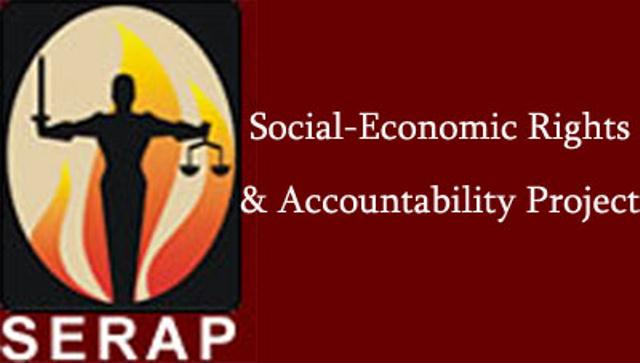The Socio-Economic Rights and Accountability Project (SERAP) has taken the National Broadcasting Commission (NBC) to court over what it describes as the arbitrary, illegal, and unconstitutional ban on Nigerian hip-hop veteran Eedris Abdulkareem’s protest song, Tell Your Papa.
The track, which allegedly criticises President Bola Tinubu’s economic policies, was recently banned from radio and television broadcasts for allegedly violating public decency standards.
Filed on Thursday at the Federal High Court in Lagos, suit number FHC/L/CS/797/2025 seeks to overturn the NBC’s ban and protect broader artistic and expressive freedoms in Nigeria.
SERAP, a prominent human rights advocacy group, is asking the court for “an order setting aside the arbitrary and illegal ban” and a “perpetual injunction restraining NBC and any other authorities from preventing the song’s broadcast on all media platforms across the country.”
In a letter dated April 9, 2025, the NBC directed all broadcast stations in Nigeria to cease airing Tell Your Papa, citing its “objectionable nature” and claims that it offended public decency.
However, SERAP argues that the move amounts to censorship and is incompatible with both constitutional and international guarantees of free speech and artistic expression.
“The NBC is censoring music under the guise of ‘protecting public decency’. This is not a licence to choke artistic expression or suppress peaceful dissent,” SERAP stated in its court filings.
Represented by Kolawole Oluwadare, SERAP contends that freedom of expression is not limited to content that is palatable or agreeable.
“It includes expressions that may offend, shock, or disturb—particularly in political discourse and commentary on public affairs,” the group stated.
SERAP’s legal team further criticised Section 3.1.8 of the Nigeria Broadcasting Code—which NBC cited in its directive—as overly broad and intrusive, arguing that it infringes on fundamental rights.
“The ban fails to meet the principles of legality, necessity, and proportionality,” they said. “Obscure concepts like ‘objectionable content’ should not be used as pretexts to suppress dissent.”
According to SERAP, the ban has a chilling effect on artists, journalists, and the public. It not only threatens freedom of expression but also undermines access to information and the press’s role as a democratic watchdog.
“Art plays a vital role in democratic societies, offering counter-discourses and challenging existing power structures.
“Banning or suppressing such expressions restricts artistic freedom and impoverishes the cultural and political landscape,” the organisation argued.
It stressed that restrictions on free expression must be grounded in law, pursue a legitimate aim, and be demonstrably necessary—conditions the commission allegedly fails to meet.
“The NBC has not shown that Tell Your Papa poses any specific risk of harm to a legitimate state interest that outweighs the public’s right to receive and engage with its content,” the suit reads.
“Unjustified restrictions sterilise debate on human, social, and political issues and hamper democracy,” it added.
The group also underscored the socioeconomic implications of censorship: “When art is censored, it deprives artists of income, stifles creativity, and denies the public access to diverse viewpoints.
“These restrictions go beyond silencing a single song; they foster an unsafe climate for artistic and journalistic work,” it stated.




